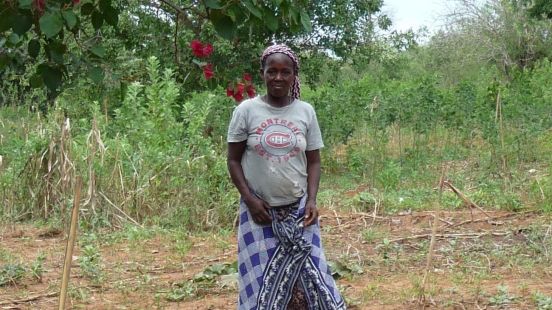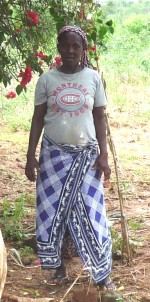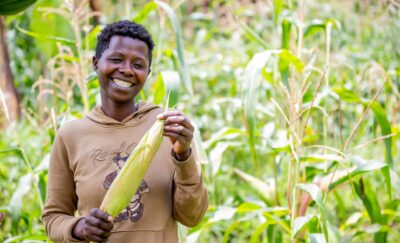Expert view
22 May 2014
"If I can’t work, eating is a challenge – sometimes we must go without food"

By Britannia Dawsey Hewitt, Farm Africa Direct Marketing Officer
I was really lucky to be offered the opportunity to travel to Kenya in March, to visit some of the Farm Africa projects in Kitui county and meet some of the farmers that we’re working with there.
I’d never travelled to Africa before, and didn’t really know what to expect. The only thing that I felt certain of was that it would be totally different from anywhere I had been. And it was. But the thing that I found most surprising was how many things felt familiar. We met with farmers who, despite leading completely different lives, reminded me of people that I knew. And when we asked them what their hopes were for their children, they all said the same thing – that they receive a good education. The same as my mum, and millions of others across the world, have always told their children.
On our first morning in Kitui, we met a woman called Christine. When Christine was young, her family decided not to send her to school. They could afford to, but they didn’t believe in educating girls. It was this experience that made Christine so determined to send her children to school every day, and meant she was more than willing to make huge sacrifices. She told us: “I believe my children have to get an education.”
Several years ago, Christine’s husband passed away, leaving her to find a way to provide for their family and farm their two acres of land by herself. To cover school costs for the three children still at home, Christine sells her harvests immediately and puts all of the money into paying for the uniform and books they need to attend their lessons. And in order to buy food for the family, Christine goes out to work on other people’s land for a small amount of money. But every day that she spends working on somebody else’s land is a day that she is not working on her own, meaning that Christine’s harvest is often limited as she is working away when her seeds need to be planted.
And when she is able to harvest her crops, Christine must sell what she has grown as quickly as possible to cover the next term’s school costs, no matter how little she is being offered for her produce. The urgent need for cash to cover school costs leaves Christine vulnerable to traders looking to make a quick profit. And last harvest, Christine was paid just 70 Kenyan shillings per kilogram of green grams (around 47p) – only to be charged 80 Kenyan shillings per kilogram of seeds when the time came to plant.
 As the family can often only afford one meal a day, Christine works all day in the heat and waits to eat when her children come home. And when there isn’t enough food to go round, Christine gives everything to her children. She told me: “I can do without food, I want to make sure my children are at school.” As a part of Farm Africa’s sorghum and green grams project, Christine will now receive training in techniques that will help her crops thrive, even when there is little rainfall. And we will loan Christine the high-quality seeds she needs to grow more, healthy crops. So that soon, she will no longer have to make the choice between food and education.
As the family can often only afford one meal a day, Christine works all day in the heat and waits to eat when her children come home. And when there isn’t enough food to go round, Christine gives everything to her children. She told me: “I can do without food, I want to make sure my children are at school.” As a part of Farm Africa’s sorghum and green grams project, Christine will now receive training in techniques that will help her crops thrive, even when there is little rainfall. And we will loan Christine the high-quality seeds she needs to grow more, healthy crops. So that soon, she will no longer have to make the choice between food and education.
Despite all of the struggles she faces, Christine has never wavered in her belief that education is the most valuable gift she can give her children. The same belief that parents all around the world have always held, and will always continue to hold.




